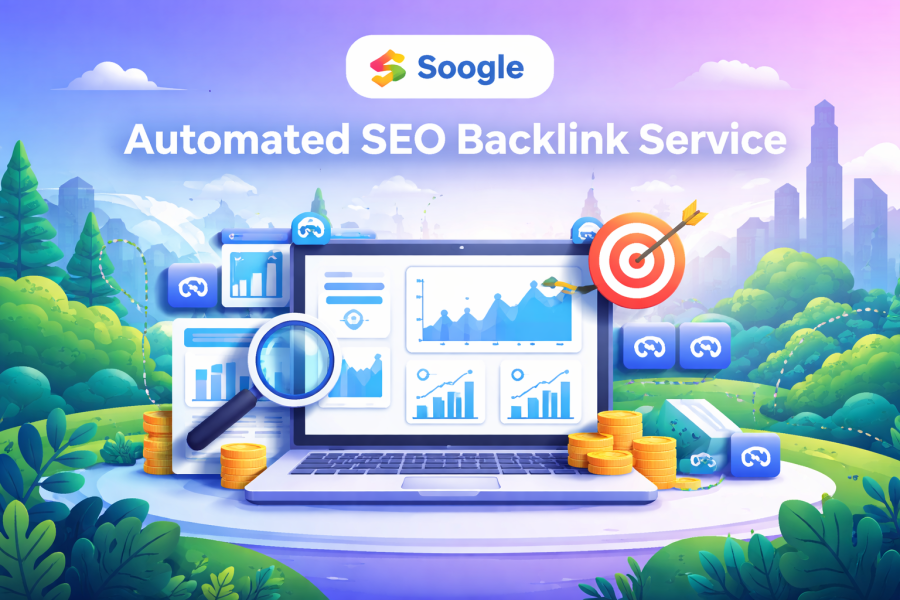
In today’s digital age, businesses are undergoing rapid transformation through automation, data analytics and cloud computing. Among the most powerful enablers of this transformation are top AI cloud business management platform tools. These platforms combine artificial intelligence, machine learning, and cloud infrastructure to streamline operations, reduce costs, and deliver real-time insights across departments.
In this guide for GuestPost.UK, we’ll dive deep into what makes a top AI cloud business management platform tool, review leading solutions in 2025, and show you how to pick the one that suits your business best — all while keeping a healthy 3 % density of the main keyword “top AI cloud business management platform tools.”
What Are the Top AI Cloud Business Management Platform Tools?
Definition & scope
“Top AI cloud business management platform tools” refers to cloud-based software ecosystems that embed AI/ML capabilities into core business operations, covering tasks such as workflow automation, predictive analytics, resource allocation, customer relationship management, financial operations, and more. Unlike legacy ERP systems, these platforms are designed to adapt, learn, and provide intelligent insights to guide decision-making.
Core components typically include:
- AI/ML engines (for prediction, anomaly detection, classification)
- Integration APIs (to connect with CRM, ERP, supply chain, HR tools)
- Real-time dashboards & reporting
- Automated workflows / robotic process automation (RPA)
- Scalability across hybrid or multi-cloud environments
These platforms essentially become the “brain” sitting atop your business’s cloud infrastructure, interpreting data and suggesting or executing actions.
Why Businesses Need Top AI Cloud Business Management Platform Tools
Business Benefits & Use Cases
- Operational Efficiency & Automation
Manual tasks, such as data entry, invoice processing, or routine approvals, can be automated. This frees employees to focus on higher-value work. - Predictive Insights & Decision Support
These tools forecast demand, detect anomalies, and suggest optimisations — helping leaders make smarter, proactive decisions. - Cost Control & Cloud Governance
With visibility into cloud usage and resource consumption, companies can avoid overspending or “cloud waste.” - Scalability & Flexibility
As your business grows, you can scale usage without significant capital investment. - Cross-department alignment
A unified AI cloud platform enables sales, finance, operations, HR, and IT teams to work from the same data and logic.
Two Key Statistics
- The global cloud AI market is projected to grow from USD 102.09 billion in 2025 to USD 589.22 billion by 2032, at a CAGR of 28.5 %.
- According to data from CloudZero, over 90% of organisations now use cloud computing, with many operating more than half of their workloads in the cloud.
These figures underscore the rapid adoption of AI-enabled cloud platforms by businesses.
Key Criteria for Evaluating the Top AI Cloud Business Management Platform Tools
To choose the best among the top AI cloud business management platform tools, evaluate them against:
- AI & Analytics Capabilities: Quality of built-in models, support for custom models, explainability
- Integration & Extensibility: APIs, connectors to CRM, ERP, third-party tools
- Cost & Licensing: Pay-as-you-go, tiered pricing, hidden costs
- Security & Compliance: Data encryption, regulatory compliance (e.g. GDPR, PCI)
- Scalability / Multi-Cloud Support: Ability to operate across AWS, Azure, GCP, and private cloud
- User Experience & Low-Code Options: Ease of use, drag-and-drop, low/no-code interfaces
- Vendor Support & Ecosystem: Documentation, community, marketplace, support SLAs
You want a platform that not only delivers today’s core features but can evolve as your business and AI strategies mature.
Leading Top AI Cloud Business Management Platform Tools in 2025
Below is a comparative look at some of the most prominent top AI cloud business management platform tools in 2025:
| Platform | Strengths / Best Use Case | Potential Limitations |
|---|---|---|
| Morpheus Data | Excellent for hybrid cloud orchestration + AI policy management (often cited as best overall) | Learning curve; licensing cost for smaller users |
| Flexera Cloud Management Platform | Strong in cost governance, AI-driven insights, and cloud governance workflows | May lack deep ML model-building capabilities |
| Nutanix Cloud Manager | Good hybrid/private + public cloud optimisation with AI automation | Less mature in predictive analytics compared to cloud-native platforms |
| Google Cloud Vertex AI | Robust AI/ML model pipeline, integration with BigQuery, AutoML, and explainable AI | Costs can escalate, steep learning curve for non-AI specialists |
| Microsoft Azure AI | Deep integration with the Microsoft stack, strong enterprise tooling, and Cognitive Services | Complexity in pricing may require Azure expertise |
| AWS SageMaker & AI Services | Mature platform, many AI services (Comprehend, Lex, etc.), wide ecosystem | Complexity, multiple modules may complicate licensing |
| Salesforce Einstein | Great for CRM, sales & marketing AI use cases, unified within the Salesforce ecosystem | Not ideal for general infrastructure/IT operations |
| Zoho One (with Zia, AI modules) | Integrated all-in-one solution for SMBs with AI modules across CRM, HR, and marketing | Less powerful for large-scale custom AI models |
| SAP Business Technology Platform (BTP) | Strong in enterprise operations, ERP integration + AI services | Primarily suited to SAP-centric customers |
All of the above qualify as contenders among the top AI cloud business management platform tools — depending on business size, domain, and use case.
Analogy: The AI Cloud Platform as a Smart City Mayor
Imagine your business as a bustling smart city. Data streams are like traffic, resources are energy, and departments are districts. A top AI cloud business management platform tool is like a brilliant mayor with predictive powers:
- It senses traffic jams before they happen (predictive alerts),
- Allocates power where needed (resource optimisation),
- Helps emergency services respond fast (automated workflows),
- Coordinates cross-district projects (integrated insights),
- And learns citizens’ habits over time to improve city planning (ML feedback loops).
Just as a smart mayor makes the city more efficient and livable, your AI cloud platform orchestrates your business operations with intelligence and foresight.
How to Choose the Right Tool for Your Business
Follow this step-by-step roadmap to select the best among the top AI cloud business management platform tools for your organisation:
- Map your needs and KPIs
Define top priorities (cost control, marketing insights, operations automation, etc.). - Pilot with a smaller use case
Run a proof-of-concept in one department before rolling it out fully. - Evaluate integration friction
Test connectors with your current CRM, ERP, database, and other systems. - Monitor performance & ROI
Monitor adoption, time saved, forecasting accuracy, and other key metrics. - Scale gradually
As confidence grows, expand usage to other divisions. - Negotiate SLAs & pricing
Insist on predictable, transparent pricing and performance guarantees.
By using this methodological approach, you’ll reduce risk and find the tool that truly fits rather than just the flashiest one.
Frequently Asked Questions
Q1: What does “top AI cloud business management platform tools” mean exactly?
A1: It refers to cloud software platforms that embed artificial intelligence into business operations — offering automation, prediction, optimisation, and orchestration across multiple departments (sales, finance, operations, IT). The term “top” emphasises maturity, adoption, capability, and overall quality.
Q2: Are these tools only for large enterprises?
A2: Not at all. While many large organisations adopt them first, there are AI cloud platforms designed for SMEs and mid-market businesses (e.g., Zoho One, Salesforce with tailored plans) that also rank among the top AI cloud business management platform tools.
Q3: How much does a top AI cloud business management platform tool cost?
A3: Pricing varies widely — from modest per-user SaaS plans to enterprise licensing or consumption-based models. Hidden costs may include data egress, custom integrations or training.
Q4: Can I switch tools later?
A4: Yes, but it can be complex. Look for platforms that support exportable models, open APIs, or data portability to facilitate a seamless migration.
Q5: How quickly can ROI be realised?
A5: In many cases, moderate gains (like automating tasks, improving forecasting) can show benefits in 3–6 months. Broader benefits often accrue over 12–18 months if adoption is strong.
Conclusion
As businesses increasingly operate in cloud environments and demand intelligence at scale, top AI cloud business management platform tools are no longer a luxury — they’re becoming essential. The right platform can automate your operations, reduce costs, provide predictions, and unify your business under one intelligent umbrella.







